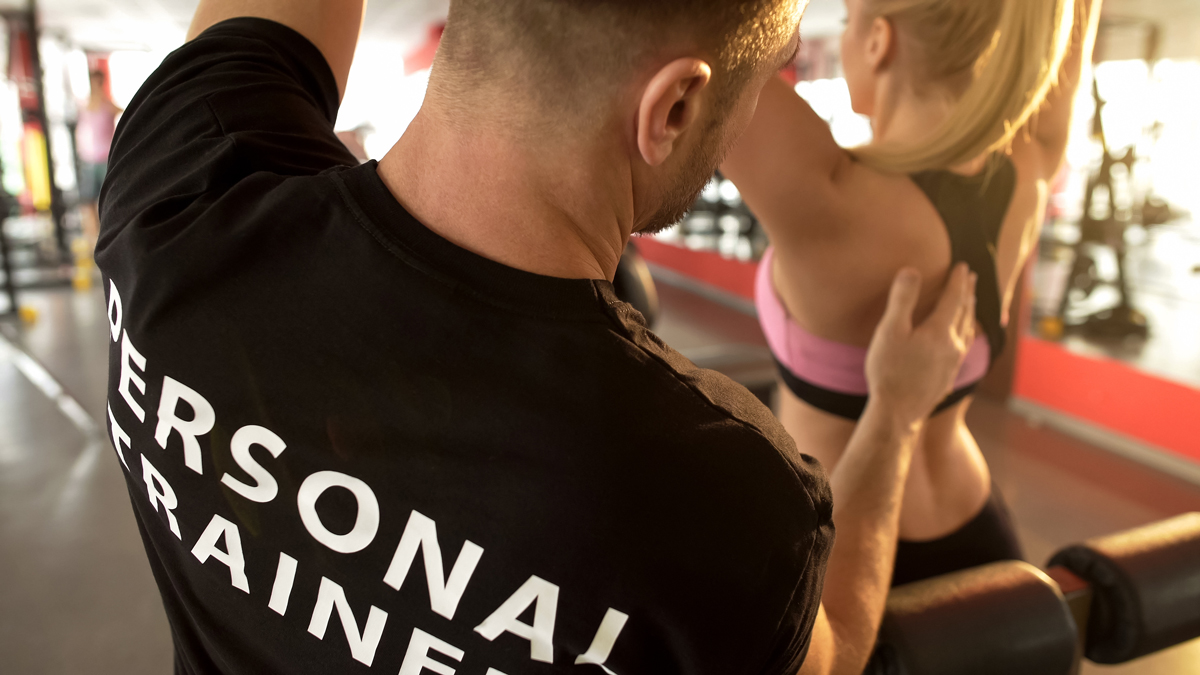BY MARK KINI
I get asked this question a lot ... do you know any good personal trainers? The short answer is yes, I know a lot of great trainers—and even some not-so-great ones. I personally work with someone whom I have known for 40 years. He has a degree in exercise science and has all the top accredited certifications. More importantly, he is a skilled and effective trainer. I have been working with him twice a week for the past two years and have made measurable gains, including competing in two powerlifting meets and winning the masters division in both competitions.
 Finding a new trainer isn’t difficult. If you belong to a gym, they often have them available, or you can ask staff or other gym-goers for recommendations. You can also try websites like findtraingain.com or fitnesstrainer.com, which will let you set preferences for your search. Make sure you read their profile and do your research.
Finding a new trainer isn’t difficult. If you belong to a gym, they often have them available, or you can ask staff or other gym-goers for recommendations. You can also try websites like findtraingain.com or fitnesstrainer.com, which will let you set preferences for your search. Make sure you read their profile and do your research.
Embarking on a fitness journey is an exciting commitment to your health and well-being. Whether you’re a newcomer to the world of exercise or a seasoned gym-goer looking to take it up a notch, having a personal trainer by your side can make all the difference. But with innumerable options out there, how do you choose the perfect personal trainer who aligns with your goals and keeps you motivated? Fear not, as we guide you through the essential steps in selecting the ideal fitness partner to accompany you on your path to success.
Define Your Goals:
Before diving into the sea of personal trainers, take a moment to define your fitness goals. Whether you’re aiming for weight loss, muscle gain, improved flexibility, or overall wellness, having a clear understanding of your objectives will guide your selection process. Different trainers specialize in various areas, so matching your goals with their expertise is the first step towards success.
Credentials and Certification:
Look for trainers with accredited certifications from recognized organizations. Certifications like NASM (National Academy of Sports Medicine), ACE (American Council on Exercise), or ISSA (International Sports Sciences Association) indicate that a trainer has undergone rigorous training and education. These certifications are your assurance of their knowledge and commitment to professional standards.
Experience Matters:
While a newly certified trainer can bring fresh perspectives, experience often plays a crucial role in understanding diverse client needs. Consider the balance between the trainer’s experience and their alignment with your specific goals. A seasoned trainer might have a more refined approach, but a newer trainer could bring enthusiasm and more timely knowledge.
Specialization and Expertise:
Personal trainers often have areas of specialization. Some may focus on strength training, others on corrective exercises, while others may specialize in certain demographics like seniors or athletes. Evaluate your needs and seek a trainer whose expertise aligns with your goals. For instance, if you’re training for a marathon, a trainer with experience in endurance sports would be ideal.
Personality and Communication:
The relationship between you and your personal trainer goes beyond sets and reps; it’s about mutual respect and effective communication. During initial consultations or interviews, pay attention to how well you connect with the trainer. Are they a good listener? Do they understand your preferences and unique needs? A harmonious trainer-client relationship fosters a positive and motivating workout environment.
Availability and Scheduling:
Assess the trainer’s availability and how well it aligns with your schedule. If you’re a morning person, a trainer who offers early sessions might be more suitable. Similarly, consider their location and whether it fits into your daily routine. Consistency is key in any fitness journey, so choose a trainer whose schedule complements yours.
Client Testimonials and Reviews:
Explore client testimonials and online reviews to gain insights into the trainer’s track record. Happy and satisfied clients often indicate a trainer’s effectiveness and commitment. Don’t hesitate to ask for references or success stories to get a firsthand account of the trainer’s impact on their clients’ lives.
Trial Sessions:
Many trainers offer trial sessions or consultations. Take advantage of these opportunities to assess their training style, communication, and how well they understand your goals. A trial session is an excellent way to determine if the trainer’s approach resonates with your preferences and expectations, and don’t be afraid to keep looking if you find that you don’t connect.
Choosing a personal trainer is a significant decision that can greatly influence your fitness journey. By defining your goals, considering certifications, evaluating experience, aligning with expertise, connecting on a personal level, accommodating schedules, checking reviews, and taking advantage of trial sessions, you can make an informed choice that sets the foundation for a successful and fulfilling fitness partnership. Remember, your personal trainer is not just a guide; they are your motivator, supporter, and partner in achieving the health and fitness goals you aspire to reach. Choose wisely and embark on your fitness journey with confidence! [CD0124]
Mark Kini is the president and CEO of Boston Chauffeur. He can be reached at mark@bostonchauffeur.com.

